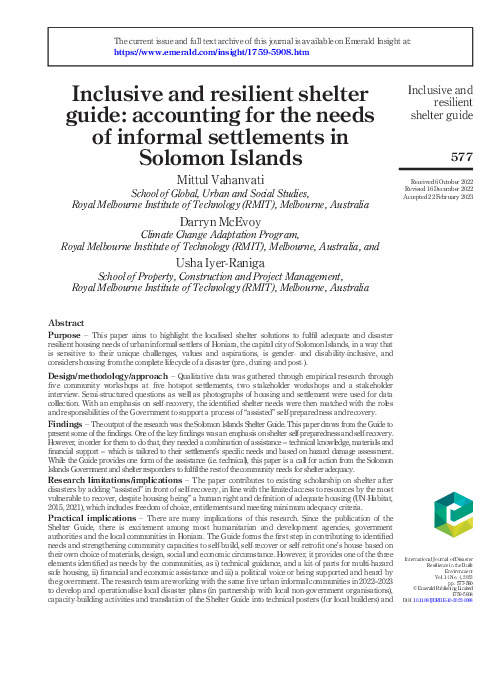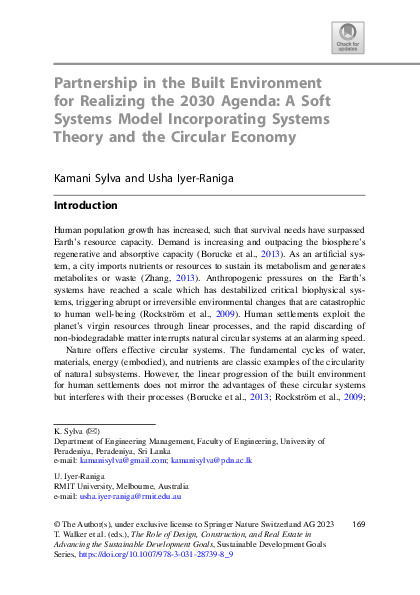Transitioning to a state-wide circular economy: Major stakeholder interviews
Circular Economy (CE) has received widespread attention from various stakeholders as a preferred solution in response to global issues of environmental changes and resource scarcity. The Australian state of Victoria is in the process of transitioning to CE. In comparison to other states and countries, the literature and practice related to CE implementation in this state are limited. In this context, the research aims to understand CE development through the investigation of CE awareness, drivers, challenges, enablers, and barriers across stakeholders. Semi- structured interviews with major stakeholders were employed to understand how to optimise a CE transition. The research findings suggest that enhancing CE understanding with a focus on CE systems, principles, and processes is crucial to support a genuine CE transition and reduce misinterpretation of CE in being synonymous with recycling and waste management. The relationship between enablers, challenges, drivers, and barriers contributes to the development of CE strategic plans and roadmaps for a state-wide transition.
Professor Usha Iyer-Raniga is at the School of Property and Construction Management at RMIT University. Usha is co-leading the One Planet Network’s Sustainable Buildings and Construction Programme (SBC), United Nations 10 Year Framework of Programmes on Sustainable Consumption and Production (UN 10FYP SCP) aligned with Sustainable Development Goal 12, as well as the newly formed Integrated Platform for Circular Economy, Climate Resilience, and Energy. This is directly related to the work of the UN OPN SBC programme.


